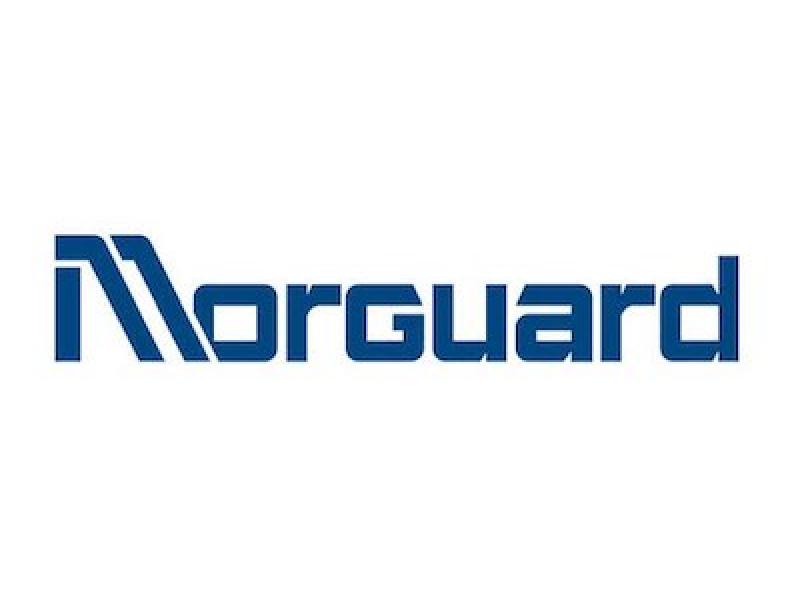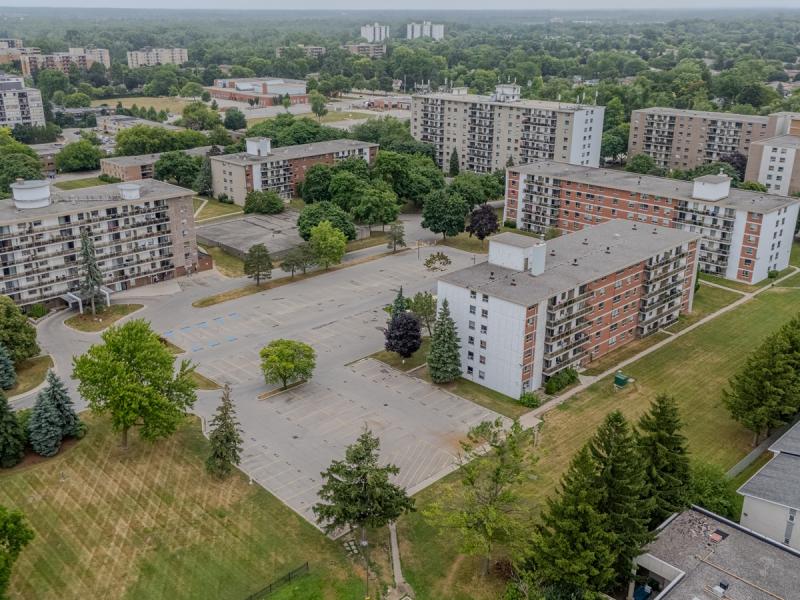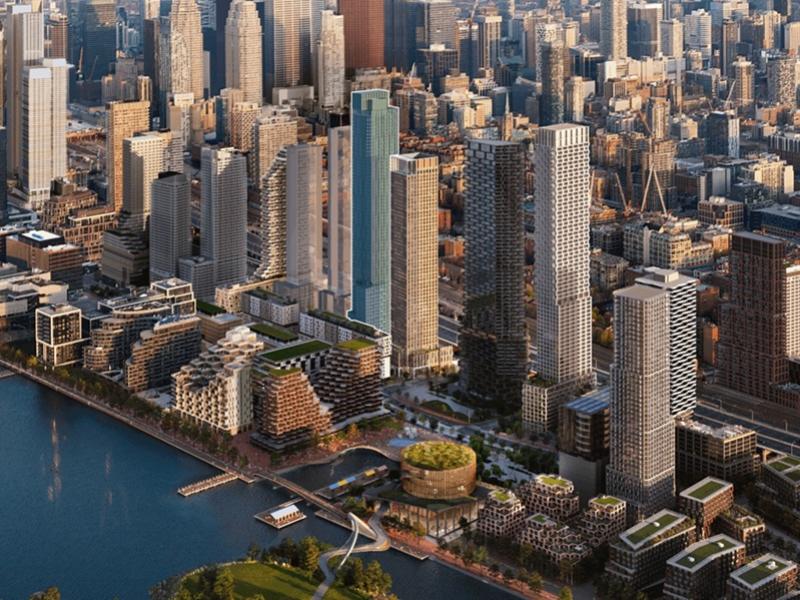
Risk in the condo sector caused by rising interest rates and buyer reticence has, along with strong leasing fundamentals, sparked renewed interest in purpose-built rental construction.
“The one thing that’s happening right now is rents are continuing to go up and we have a lot of immigrants coming,” Richard Lyall, president of the Residential Construction Council of Ontario (RESCON), told RENX.
Canada increased its annual immigration quota in 2022 to 500,000 newcomers per annum, beginning this year — and that’s in addition to 300,000 to 400,000 annual permit workers.
Roughly half of both cohorts settle in the Greater Golden Horseshoe in Ontario, and considering the average home sale in the Greater Toronto Area (GTA) was $1,038,668 in February, the majority will rent upon arrival.
The economic chasm between purpose-built rental and condominium construction has always tilted in the latter’s favour, and while that remains as true today as a couple of years ago – even despite elevated rental rates – the condo market is rife with uncertainty.
Buyers have pulled back and some developers struggle carrying land because of higher interest rates.
Uncertainty remains, impacting condo sector
“Condo purchase prices may have come down a bit, but carrying costs have gone up because interest rates have gone up, so you’re not that much further ahead,” Lyall said. “What we need in the market is stability, which comes through predictability.
"Will rates start falling? That seems to be the prevailing view, which is good, but it’s not in the can yet.”
The Bank of Canada didn't add any clarity, either, when it held rates for the first time in a year during its March announcement but hinted it might have to increase them if the economy and inflation do not settle down.
Lyall noted pension funds “searching for alpha” are becoming prominent players in the purpose-built sector because of the high rate of return on investment.
In the GTA, the condo market serves as a surrogate for purpose-built rentals, of which there aren’t a sufficient number to house all of the city’s renters.
Save for the height of the pandemic in 2020 to 2021, the region has had sub-two per cent vacancy rates going back a decade.
Condominiums can't bridge deficit in rentals
While that alone has been enough to attract condo investors, a report from Urbanation noted there won't be a sufficient amount to close the supply-demand gap as Canada braces for a record number of immigrants.
“By whatever metric, it’s clear that the number of investors in the housing market (who) use their properties as rentals either needs to be higher, or we need to start building a massive number of purpose-built rentals,” said the report, which noted 41.2 per cent of condo owners in Ontario are investors.
“One-third of Canadian households live in a home they do not own — a share that has increased in the past 10 years and will continue to rise in the next 10 years with higher levels of immigration and non-permanent residents, and the sobering reality that homeownership has fallen out of reach for an increasingly greater share of the population.”
Investor appetite for condos is quite high, but not enough to mitigate the risk that comes with building a high-rise tower amid interest rate hikes and historical inflation. Growth in foreclosures is an ominous warning sign, too.
Condominium presales, a precursor to the rental market, the same report noted, declined by 68 per cent year-over-year in the second half of 2022.
However, in the last decade, the number of renter households in the GTA was more than three times greater than those that were owned.
Moreover, even though condo rentals surged by more than 130 per cent during this period, they still fell short of satisfying demand, causing rents to jump by more than 50 per cent.
"Always" a good time to build rentals
“It’s always been a great time to build purpose-built-rentals and now there are so many benefits. One of those key benefits is the ROI for units renting,” said Mirella Sarrapochiello, vice-president of sales and marketing at Dunpar Homes, which builds houses, townhomes, condos and purpose-built rental buildings.
“Another big one is when you’re doing presales, you have to meet financing thresholds, but with purpose-builts, developers are pre-renting.”
Presales mean costs are fixed, she said. But because pre-leasing begins within, roughly, a couple of months of occupancy, developers have more flexibility to charge market-commensurate rents.
Dunpar Homes presently operates two purpose-built rental developments, for which there’s a waiting list, and has more in the pipeline.
“Rents will continue to rise because people are afraid to buy,” Sarrapochiello said, adding Dunpar is seeing plenty of demand from families as opposed to single people wanting one-bedrooms.
“Resale prices are dropping, but in new sales developers aren’t dropping their prices. People are worried because interest rates may have another hike. People are waiting and rentals are the best place to go,” she said.
“In condo buildings, they sell smaller units because of the price points (per square foot), but in a rental you can have bigger units.”
Purpose-built rental incentives
Sarrapochiello said purpose-built developers also reserve the right to convert their asset into condominiums at a later time, further reducing risk.
Lyall pointed to the U.S. which has had its biggest purpose-built rental boom since the 1980s, and added that Canada is nowhere close to its southern neighbour despite having similarly auspicious conditions.
That is curious since both the federal and Ontario governments have offered plenty of inducements for purpose-built rental developers — a stark contrast to the development charge and tax regimes imposed upon condo builders.
Additionally, condo developers are grappling with higher material costs preventing them from lowering their prices.
“In the City of Toronto, (development charges) just went up 46 per cent alone,” Lyall said.
“Rents are continuing to rise and if you can make the numbers work — there are certain credits introduced by the government by way of development charges to encourage rental housing — it’s a good time to build purpose-built rentals.”










